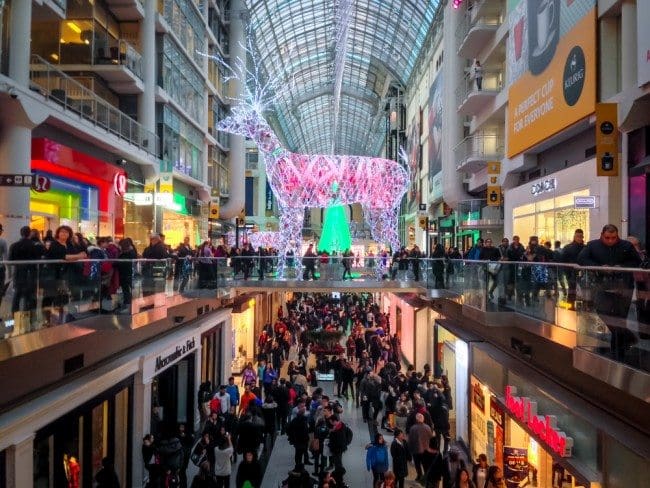Survey by trade union Usdaw reveals more than half of shop assistants suffered abuse last year
Shoppers keen to grab a pre-Christmas bargain are being urged to show restraint during this week’s controversial Black Friday shopping frenzy, following concerns over the number and severity of physical attacks on shop workers during last year’s event, reports The Guardian.
The leader of Usdaw, which represents shop and retail workers, has appealed to consumers to exercise calm after reports of “worryingly high” levels of violence and abuse in 2014.
The union has welcomed recent announcements by some stores, including Asda and Tesco, that they will scale back their activities on Friday by restricting opening hours or increasing crowd control measures. But John Hannett, Usdaw’s general secretary, said shopworkers still had real concerns that the chaos and violence that marred last year’s events could happen again.
“The last two years have seen unprecedented scenes of mayhem in some stores,as bargain hunting turns into a frenzy,” he said. “We have been talking to retailers on behalf of our members, who have responded positively about organising their events to maximise safety and security for staff and customers alike. We also welcome the interest of the police, who have urged retailers to organise these sales events safely.”
Interim results of Usdaw’s “Freedom from Fear” survey – due to be published in full later this week – sets out the ugly side of working in retail. The survey involved face-to-face interviews with 2,536 shop workers conducted by Usdaw representatives, who asked them to recount their experiences at work over the last 12 months. More than half had been victims of verbal abuse, while nearly a third had been threatened by customers. Nearly 10% had been victims of physical violence, although 22 per cent of them did not report it to their employers.
“We know from talking to our members that, in stores where there were Black Friday events last year, the number of incidents increased, not just in frequency but also in severity,” said Hannett.
Black Friday is an established American phenomenon. It takes place on the day after the Thanksgiving holiday and is now the biggest shopping day on the US retail calendar. It has taken place in the UK on a small scale for the last decade but only became big business last year when hundreds of high street stores joined online retailers for the first time to offer heavily discounted items.
It caused mayhem in some stores as bargain hunters stormed supermarkets in the early hours of the morning. The worst scenes were in Greater Manchester, where at least three people were arrested as fighting broke out, but police were called to keep the peace at dozens of places throughout the country.
Earlier this month, Asda – which is owned by US retail giant Walmart – announced it would scale back its involvement in this Friday’s event, blaming “shopper fatigue”. Tesco has also changed its plans, announcing that all 250 of its larger Tesco Extra stores (which are open 24 hours a day) participating in Black Friday will open at 5am rather than midnight to “give staff the chance to prepare for shoppers’ arrival”.
The industry is keen that the event does not go the way it has over the Atlantic. In the US, shoppers have increasingly turned to violence in their fight for the best bargains and a website set up to track the number of deaths at the event in recent years reveals a total of seven fatalities and 98 injuries.
The site records details of accidents caused by stampeding shoppers in search of bargains, and stabbings and “brawls” in parking lots. It also records two serious injuries from the UK in 2014 – “woman with broken wrist; head injury from fallen TV during ‘scuffle’”.
In the US, Walmart has attempted to impose crowd control by handing out wristbands for the most popular deals with limited stock.
But despite last year’s ugly scenes, UK retailers are predicted to ring up a total of £1.6bn in online and in-store sales on the day this year, up 20 per cent on 2014, according to retail analysts at Conlumino. Visa Europe predicts even higher spending of £1.9bn, with face-to-face spending up 4% on 2014 and 20% on 2013.
Some stores have sought to slow down the rush of shoppers by launching their discounted deals early. Amazon has already done this, for example, while on Friday Argos kicked off 12 days of deals across thousands of items including toys, televisions and health products.


